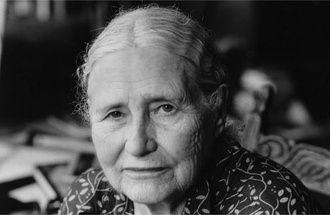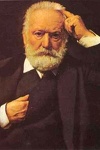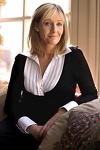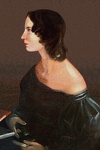Doris Lessing
Auteur
Activité et points forts
Thèmes principaux
Classement dans les bibliothèques
Quelques chiffres
Note moyenne : 6.95/10Nombre d'évaluations : 146
0 Citations 76 Commentaires sur ses livres
Les derniers commentaires sur ses livres

Cette lecture est riche de ce qu'elle nous apprend du racisme outrancier des colons anglais d'Afrique du Sud , formatés à ne même pas reconnaitre leurs " nègres" comme des êtres humains. Bien que l'analyse psychologique des personnages et la progression du scénario très finement amené soit remarquable , je suis restée un peu à distance , du fait , je pense que tous les personnages, me sont profondément antipathiques, malgré les circonstances atténuantes que la description de leurs sentiments laisse entrevoir.
Afficher en entier
Bon livre sur la vision des relations entre classes sociales, et couleurs de peau.
Afficher en entier
Les grand-mères...
Comme celles que je n'aurais jamais voulu avoir.
Comme celles qui s'immiscent dans la moindre parcelle d'intimité de leur famille.
Comme celles qui refusent le bonheur des autres, indépendant du leur.
Comme celles qui manipulent avec talent les émotions de chacun.
Comme celles qui isolent ceux qu'elles aiment, telle une veuve noire.
Comme celles qui se déclarent indispensables.
Comme celles qui laissent leur égoïsme s'exposer au grand jour.
Comme celles que Doris Lessing a imaginées avec talent.
Cette lecture est dérangeante, désarmante, malsaine et étouffante.
Ce huis-clos m'a coupé les ailes et m'a parfois donné la migraine.
Rien que pour cela, je salue le talent de l'auteur et je ne suis pas étonnée qu'elle ait été récompensée d'un prix Nobel de littérature.
Un tout petit roman dont la force va laisser des traces dans la vie de toutes les belles filles opprimées par leur belle-mère, dans le quotidien de ces fils trop couvés et dans ma vie de lectrice passionnée par les émotions contrastées des relations humaines.
Afficher en entier
Aussi malaisant, parfois, que Grenouille (dans "Le Parfum"), bien qu'ici Ben soit une belle âme à l'esprit simple qui s'il sert de "porte-bonheur" aux autres (qui s'en sortent bien grâce à lui) se fait manifestement exploiter bien plus souvent qu'à son tour.
Autant le personnage des "Fleurs pour Algernon" s'avère attachant autant là, bien que frustré, peiné, révolté même, pour Ben...les larmes ne viennent pas.
Pourquoi je fais référence à des titres sans lien avec Doris Lessing ? Parce que vraiment ce personnage m'a fait penser à eux.
La bêtise et surtout la méchanceté humaine est blessante dans ce roman.
Pourtant je n'ai pas réussi à être accrochée aussi fort que je m'y attendais. Pendant la majorité du récit...l'ensemble n'a ni queue ni tête. On enchaîne digression sur digression, qui au lieu d'être plaisantes m'ont surtout laissé froide ou perplexe.
La finalité est hard mais idem...une impression de "tout ça, pour ça". (Car ça traîne en longueur inutilement.) Et en même temps une nausée intrinsèque.
Verdict : Une histoire dépressive, crue et sans aucune réjouissance.
Pour découvrir l'auteure peut-être qu'un autre texte m'aurait séduit. Là ce n'est pas le cas. "Le monde de Ben" est la suite de "Le cinquième enfant"...que je ne lirais pas. Sachant déjà n'y être potentiellement spectatrice que de rejet...car vu les souvenirs de Ben a de forts rares exceptions il n'a connu que cela durant toute sa vie... pleine de désespoir et d'insatisfaction.
Si vous avez le blues...passez votre chemin.^^ Le positif fuit trop ces pages pour vous redonner bon moral.
Afficher en entier
Il s'agit d'un roman futuriste, situé dans un avenir étrange, avec des phénomènes surnaturels. le mur et le nouveau monde sont parfois considérés comme la métaphore d'un livre. La violence y est dénoncée, principalement celle associée à des enfants très jeunes, la vision de l'avenir selon la romancière qui s'intéresse à cet aspect social, en lien direct avec la délinquance des plus jeunes.
Afficher en entier
Un petit hommage à l'inspiration africaine de Doris Lessing. Je ne vais pas présenter le prix Nobel. Une anecdote : les journalistes lui annonçant la nouvelle, ce qui lui est venu à l'esprit : "I couldn't care less" ("je ne pourrais en avoir moins cure" ?). Donc, parmi son oeuvre très vaste, une bonne partie s'inspire de sa vie en Afrique. J'en garde un souvenir mitigé : son roman "The Grass Is Singing" (L'Herbe chante) avait été traduit par "Vaincue par la brousse". Rien de cela avec ce volume mais rien d'original à en dire, si ce n'est répéter ce qu'on a déjà dit : Afrique, féminisme, rapports de classe, talent de conteuse, etc.
Afficher en entier
Un roman glaçant mais incroyablement bien écrit, qui fait froid dans le dos tout en poussant le lecteur à continuer la lecture, à la fois intrigué par le personnage étrange qu'est Ben et terrifié de ce qu'il pourrait se produire.
Afficher en entier
Je n'ai pas trouvé d'intérêt à lire ce livre. Dommage il y a quand même du potentiel mais avoir des réponses auraient été bien. En plus je n'aime pas ce genre de fin
Afficher en entier
Recueil très agréable à lire avec des portraits savoureux de chats. Pour conclure, on y découvre l'origine d'une expression que même Duneton dans son recueil la puce à l'oreille ne mentionne pas : essayer d'acheter la graisse sur le dos du chat.
Extrait très amusant :
"Son Altesse disparaît en boudant, ce qui est une nouvelle preuve de son véritable sexe, car les femmes boudent rarement : elles ont trop à dire, en général, sur les sujets qui les contrarient"
Afficher en entier
Magnifique roman post-apocalyptique.
Afficher en entierLes gens aiment aussi
Dédicaces de Doris Lessing
et autres évènements
Aucun évènement prévu
Editeurs
Albin Michel : 12 livres
LGF - Le Livre de Poche : 11 livres
J'ai lu : 7 livres
Flammarion : 7 livres
La Volte : 5 livres
HarperCollins : 2 livres
Le Livre de Poche : 2 livres
10/18 : 1 livre





































Biographie
Doris Lessing was born Doris May Taylor in Persia (now Iran) on October 22, 1919. Both of her parents were British: her father, who had been crippled in World War I, was a clerk in the Imperial Bank of Persia; her mother had been a nurse. In 1925, lured by the promise of getting rich through maize farming, the family moved to the British colony in Southern Rhodesia (now Zimbabwe). Doris's mother adapted to the rough life in the settlement, energetically trying to reproduce what was, in her view, a civilized, Edwardian life among savages; but her father did not, and the thousand-odd acres of bush he had bought failed to yield the promised wealth.
Lessing has described her childhood as an uneven mix of some pleasure and much pain. The natural world, which she explored with her brother, Harry, was one retreat from an otherwise miserable existence. Her mother, obsessed with raising a proper daughter, enforced a rigid system of rules and hygiene at home, then installed Doris in a convent school, where nuns terrified their charges with stories of hell and damnation. Lessing was later sent to an all-girls high school in the capital of Salisbury, from which she soon dropped out. She was thirteen; and it was the end of her formal education.
But like other women writers from southern African who did not graduate from high school (such as Olive Schreiner and Nadine Gordimer), Lessing made herself into a self-educated intellectual. She recently commented that unhappy childhoods seem to produce fiction writers. "Yes, I think that is true. Though it wasn't apparent to me then. Of course, I wasn't thinking in terms of being a writer then - I was just thinking about how to escape, all the time." The parcels of books ordered from London fed her imagination, laying out other worlds to escape into. Lessing's early reading included Dickens, Scott, Stevenson, Kipling; later she discovered D.H. Lawrence, Stendhal, Tolstoy, Dostoevsky. Bedtime stories also nurtured her youth: her mother told them to the children and Doris herself kept her younger brother awake, spinning out tales. Doris's early years were also spent absorbing her fathers bitter memories of World War I, taking them in as a kind of "poison." "We are all of us made by war," Lessing has written, "twisted and warped by war, but we seem to forget it."
In flight from her mother, Lessing left home when she was fifteen and took a job as a nursemaid. Her employer gave her books on politics and sociology to read, while his brother-in-law crept into her bed at night and gave her inept kisses. During that time she was, Lessing has written, "in a fever of erotic longing." Frustrated by her backward suitor, she indulged in elaborate romantic fantasies. She was also writing stories, and sold two to magazines in South Africa.
Lessing's life has been a challenge to her belief that people cannot resist the currents of their time, as she fought against the biological and cultural imperatives that fated her to sink without a murmur into marriage and motherhood. "There is a whole generation of women," she has said, speaking of her mother's era, "and it was as if their lives came to a stop when they had children. Most of them got pretty neurotic - because, I think, of the contrast between what they were taught at school they were capable of being and what actually happened to them." Lessing believes that she was freer than most people because she became a writer. For her, writing is a process of "setting at a distance," taking the "raw, the individual, the uncriticized, the unexamined, into the realm of the general."
In 1937 she moved to Salisbury, where she worked as a telephone operator for a year. At nineteen, she married Frank Wisdom, and had two children. A few years later, feeling trapped in a persona that she feared would destroy her, she left her family, remaining in Salisbury. Soon she was drawn to the like-minded members of the Left Book Club, a group of Communists "who read everything, and who did not think it remarkable to read." Gottfried Lessing was a central member of the group; shortly after she joined, they married and had a son.
During the postwar years, Lessing became increasingly disillusioned with the Communist movement, which she left altogether in 1954. By 1949, Lessing had moved to London with her young son. That year, she also published her first novel, The Grass Is Singing, and began her career as a professional writer.
Lessing's fiction is deeply autobiographical, much of it emerging out of her experiences in Africa. Drawing upon her childhood memories and her serious engagement with politics and social concerns, Lessing has written about the clash of cultures, the gross injustices of racial inequality, the struggle among opposing elements within an individuals own personality, and the conflict between the individual conscience and the collective good. Her stories and novellas set in Africa, published during the fifties and early sixties, decry the dispossession of black Africans by white colonials, and expose the sterility of the white culture in southern Africa. In 1956, in response to Lessing's courageous outspokenness, she was declared a prohibited alien in both Southern Rhodesia and South Africa.
Over the years, Lessing has attempted to accommodate what she admires in the novels of the nineteenth century - their "climate of ethical judgement" - to the demands of twentieth-century ideas about consciousness and time. After writing the Children of Violence series (1951-1959), a formally conventional bildungsroman (novel of education) about the growth in consciousness of her heroine, Martha Quest, Lessing broke new ground with The Golden Notebook (1962), a daring narrative experiment, in which the multiple selves of a contemporary woman are rendered in astonishing depth and detail. Anna Wulf, like Lessing herself, strives for ruthless honesty as she aims to free herself from the chaos, emotional numbness, and hypocrisy afflicting her generation.
Attacked for being "unfeminine" in her depiction of female anger and aggression, Lessing responded, "Apparently what many women were thinking, feeling, experiencing came as a great surprise." As at least one early critic noticed, Anna Wulf "tries to live with the freedom of a man" - a point Lessing seems to confirm: "These attitudes in male writers were taken for granted, accepted as sound philosophical bases, as quite normal, certainly not as woman-hating, aggressive, or neurotic."
In the 1970s and 1980s, Lessing began to explore more fully the quasi-mystical insight Anna Wulf seems to reach by the end of The Golden Notebook. Her "inner-space fiction" deals with cosmic fantasies (Briefing for a Descent into Hell, 1971), dreamscapes and other dimensions (Memoirs of a Survivor, 1974), and science fiction probings of higher planes of existence (Canopus in Argos: Archives, 1979-1983). These reflect Lessing's interest, since the 1960s, in Idries Shah, whose writings on Sufi mysticism stress the evolution of consciousness and the belief that individual liberation can come about only if people understand the link between their own fates and the fate of society.
Lessing's other novels include The Good Terrorist (1985) and The Fifth Child (1988); she also published two novels under the pseudonym Jane Somers (The Diary of a Good Neighbour, 1983 and If the Old Could..., 1984). In addition, she has written several nonfiction works, including books about cats, a love since childhood. Under My Skin: Volume One of My Autobiography, to 1949 appeared in 1995 and received the James Tait Black Prize for best biography.
Addenda (by Jan Hanford)
In June 1995 she received an Honorary Degree from Harvard University. Also in 1995, she visited South Africa to see her daughter and grandchildren, and to promote her autobiography. It was her first visit since being forcibly removed in 1956 for her political views. Ironically, she is welcomed now as a writer acclaimed for the very topics for which she was banished 40 years ago.
She collaborated with illustrator Charlie Adlard to create the unique and unusual graphic novel, Playing the Game. After being out of print in the U.S. for more than 30 years, Going Home and In Pursuit of the English were republished by HarperCollins in 1996. These two fascinating and important books give rare insight into Mrs. Lessing's personality, life and views.
In 1996, her first novel in 7 years, Love Again, was published by HarperCollins. She did not make any personal appearances to promote the book. In an interview, she describes the frustration she felt during a 14-week worldwide tour to promote her autobiography: "I told my publishers it would be far more useful for everyone if I stayed at home, writing another book. But they wouldn't listen. This time round I stamped my little foot and said I would not move from my house and would do only one interview." And the honors keep on coming: she was on the list of nominees for the Nobel Prize for Literature and Britain's Writer's Guild Award for Fiction in 1996.
Late in the year, HarperCollins published Play with A Tiger and Other Plays, a compilation of 3 of her plays: Play with a Tiger, The Singing Door and Each His Own Wilderness. In an unexplained move, HarperCollins only published this volume in the U.K. and it is not available in the U.S., to the disappointment of her North American readers.
In 1997 she collaborated with Philip Glass for the second time, providing the libretto for the opera "The Marriages Between Zones Three, Four and Five" which premiered in Heidelberg, Germany in May. Walking in the Shade, the anxiously awaited second volume of her autobiography, was published in October and was nominated for the 1997 National Book Critics Circle Award in the biography/autobiography category. This volume documents her arrival in England in 1949 and takes us up to the publication of The Golden Notebook. This is the final volume of her autobiography, she will not be writing a third volume.
Her new novel, titled "Mara and Dann", was been published in the U.S in January 1999 and in the U.K. in April 1999. In an interview in the London Daily Telegraph she said, "I adore writing it. I'll be so sad when it's finished. It's freed my mind." 1999 also saw her first experience on-line, with a chat at Barnes & Noble (transcript). In May 1999 she will be presented with the XI Annual International Catalunya Award, an award by the government of Catalunya.
December 31 1999: In the U.K.'s last Honours List before the new Millennium, Doris Lessing was appointed a Companion of Honour, an exclusive order for those who have done "conspicuous national service." She revealed she had turned down the offer of becoming a Dame of the British Empire because there is no British Empire. Being a Companion of Honour, she explained, means "you're not called anything - and it's not demanding. I like that". Being a Dame was "a bit pantomimey". The list was selected by the Labor Party government to honor people in all walks of life for their contributions to their professions and to charity. It was officially bestowed by Queen Elizabeth II.
In January, 2000 the National Portrait Gallery in London unveiled Leonard McComb's portrait of Doris Lessing.
Ben, in the World, the sequel to The Fifth Child was published in Spring 2000 (U.K.) and Summer 2000 (U.S.). Another new novel is planned for next year.
Afficher en entier